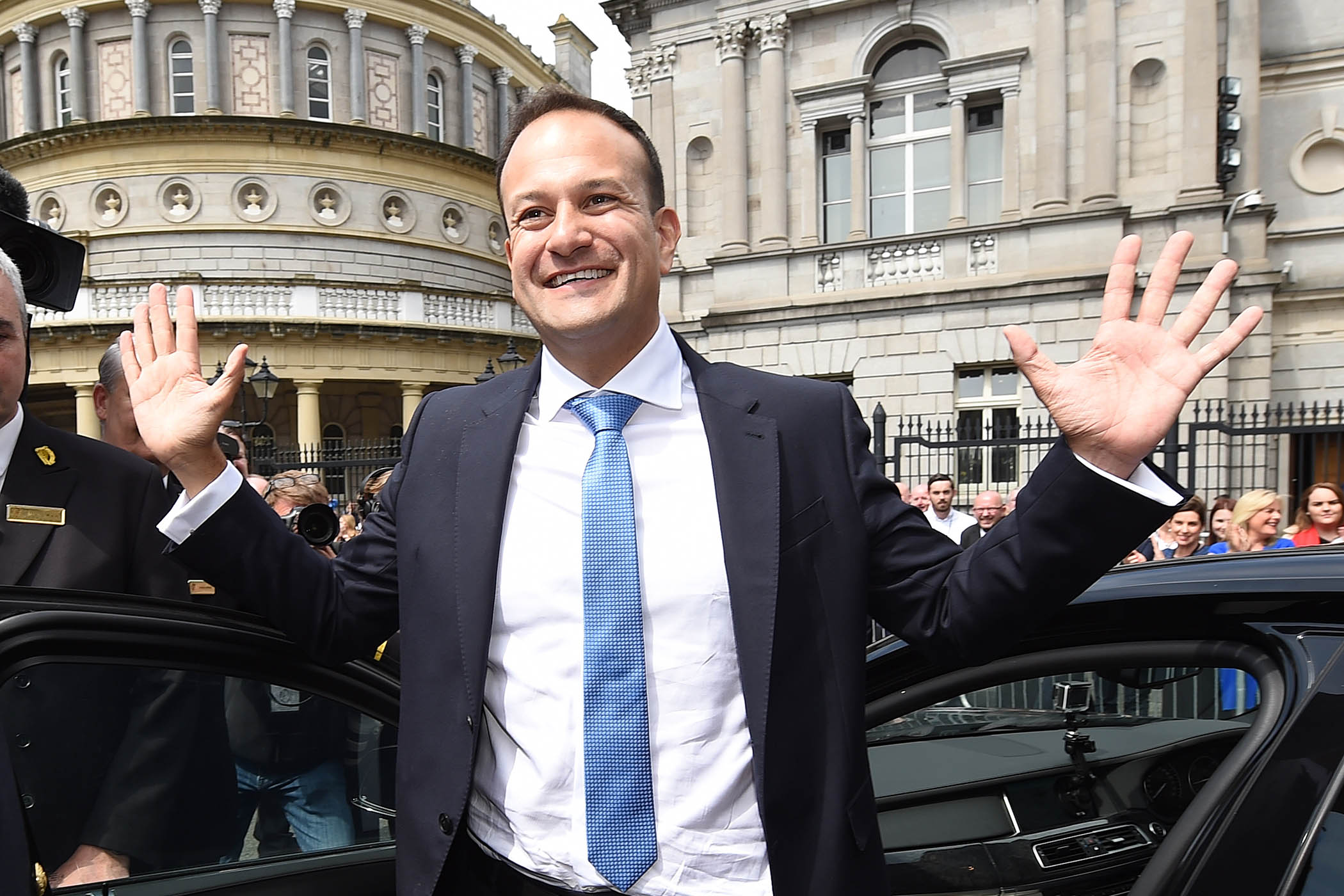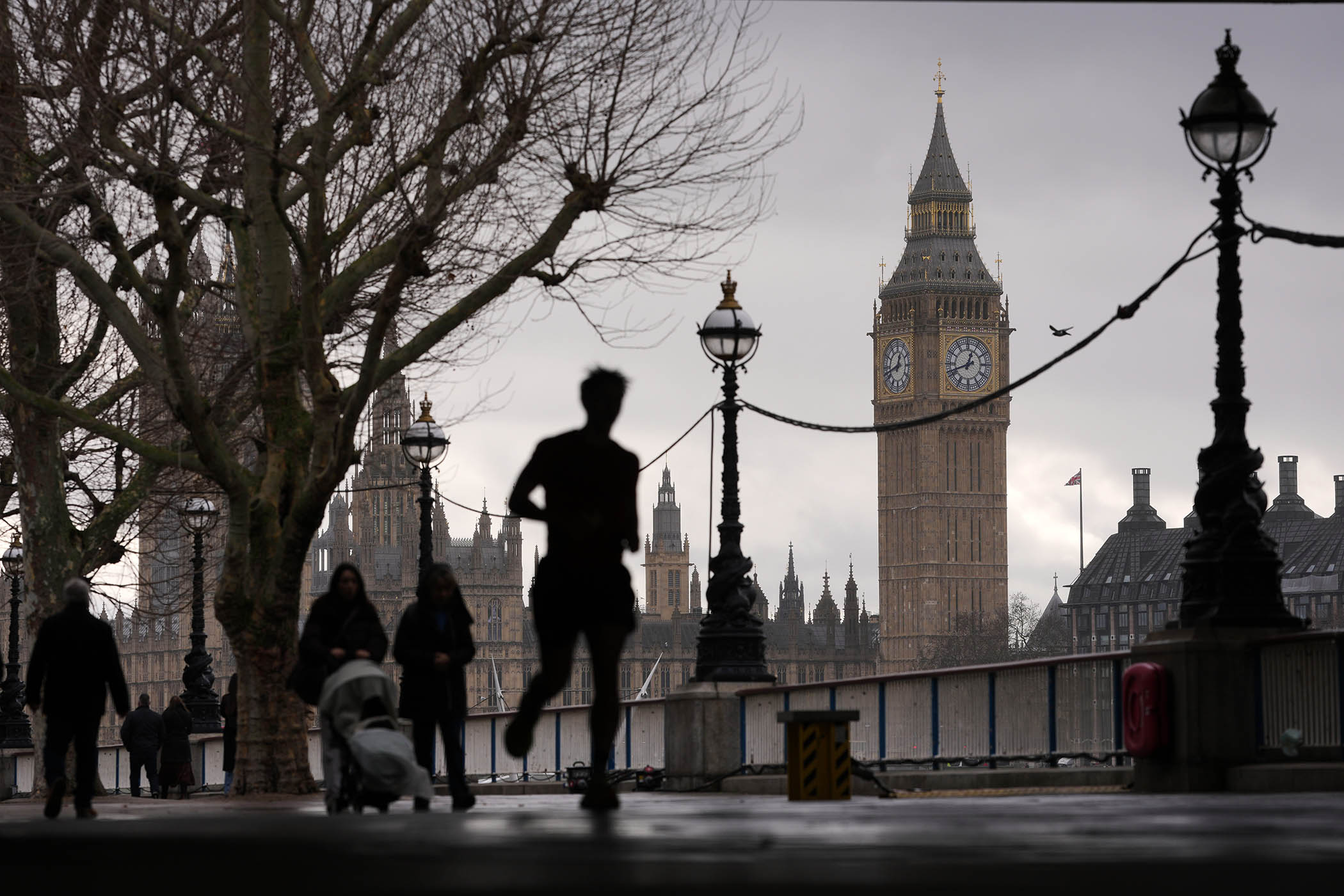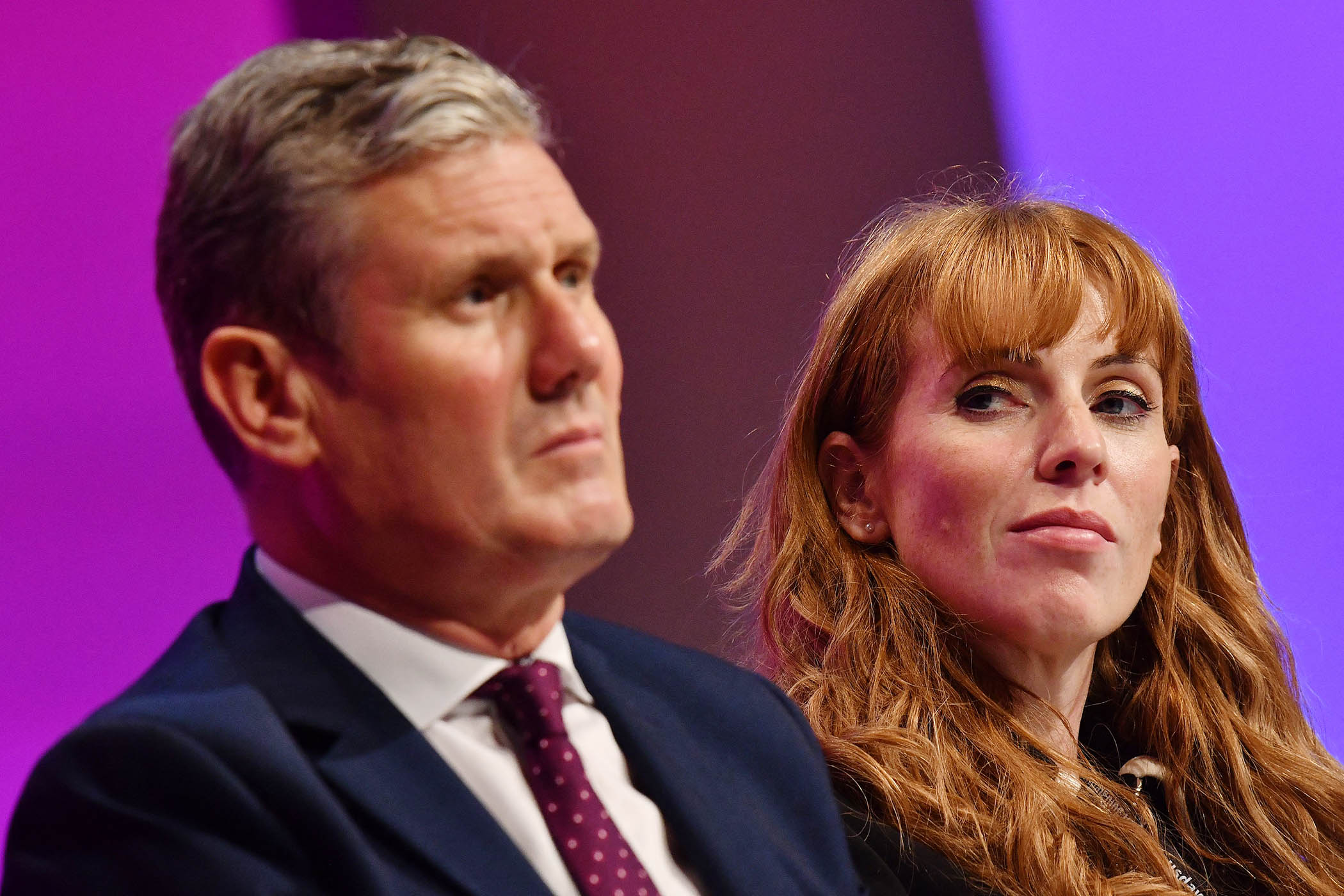Early in Speaking My Mind, the former taoiseach Leo Varadkar confesses that at primary school “the essay I hated most was What I Did on My Summer Holidays, trotted out on the first day of the autumn term every year. I could never think of anything that would be interesting enough to impress.” A pity then that so much of his memoir is a What I Did in Government essay in which he labours to think of things interesting enough to impress. A pity too that inside this routine ex-politician’s apologia is a much better book trying to get out.
For most Irish people, by far the most riveting event in Varadkar’s life was a radio interview he gave in 2015 in which his private self became public. At the age of 36, when he was a senior minister in a government promoting a referendum to permit same-sex marriage, he came out as a gay man. Anyone listening must have been struck, as I was, by the note of terror in the voice of a politician previously known, as he puts it here, for being “completely without self-doubt”. It was a genuinely moving moment, not because most voters really cared very much about his sexuality but because the audible anxiety spoke volumes about the cruelty of a prejudice that the Irish state had encoded in its laws for so long.
In that interview, Varadkar was understandably keen to emphasise that neither his sexual orientation nor his mixed Irish and Indian parentage should have any bearing on his public life: “It’s not something that defines me. I’m not a ‘half-Indian politician’, or a ‘doctor politician’, or a ‘gay politician’ for that matter.” This is as it should be – Varadkar’s avoidance of the traps of identity politics is a real achievement. The difficulty for his memoir, though, is that it is far more absorbing as personal story than as public history – but that the latter overwhelms the former.
The great commotion of Varadkar’s career in government was, of course, Brexit. His first stint as taoiseach between 2017 and 2020 was one in which Ireland and its border with Northern Ireland became central to the plot of an international psychodrama. Yet anyone looking here for a vivid or revealing insider account of that mad saga will be disappointed. There is little that will serve either as news or as entertainment to those who followed events at the time.
The one genuinely amusing anecdote concerns Donald Trump’s typically profound grasp on the whole situation. On a visit to Ireland, he gave Varadkar his predictions on Brexit: “I think it will all work out very well, and also for you with your wall, your border. We have a border situation in the US and you have one over here, but I hear it’s going to work out very well.” Sadly, there are too few details of this kind.
Nor does Varadkar manage any real reflection on the Ireland he helped to shape over 13 years as a cabinet minister, deputy prime minister and taoiseach. Of the disastrous austerity programme he helped to implement after the banking and property crash of 2008, he writes: “We knew some of our tough decisions were hurting people and felt awful.” Isn’t it interesting that when politicians talk of tough decisions, they always mean tough for someone else?
On the calamitous housing policies that are now tearing Ireland apart, he manages little more than a concession: “Of course, all we did on housing, taken together, still wasn’t enough.” The most revealing thing about his account of his time overseeing Ireland’s ramshackle and appallingly unequal healthcare system is the admission that he specifically requested to be taken out of that department when his party returned to government after the general election of 2016 – an implicit admission that he had neither the ideas nor the desire to change it radically.
The truth is that, as a politician, Varadkar was quite typical of those who tended to succeed in western democracies before the rise of the populist far right: a consummate pro with little desire to tackle the big issues of inequality and oligarchy.
His basic ideas are very basic indeed. He peddles the standard conservative shibboleth that the state’s finances should be run like those of a prudent family – specifically his own: “Grandad and Nana ran the farm and a small haulage business. Dad was a self-employed GP and Mum managed the clinic.” Thus it “seemed obvious” to him that he should join the centre right Fine Gael party because it stood for “responsible government that didn’t spend money we didn’t have”.
His politics are rooted in convenient denial of the power of inherited privilege. “We Varadkars,” he writes, “saw ourselves as a middle-class family, but that didn’t mean we saw ourselves as wealthy or privileged. You got what you had because you worked or studied hard. The state was there to help people, but we were always raised to believe that we weren’t just entitled to things.” Yet, by his own account, Varadkar did enjoy relative privilege. Of his mother’s family he writes: “They had a Rolls-Royce – a local first – and Nana wore fur coats and expensive-looking shoes to mass.”
Newsletters
Choose the newsletters you want to receive
View more
For information about how The Observer protects your data, read our Privacy Policy
Young Leo was educated at King’s Hospital, a fee-paying private school near the comfortable middle-class south Dublin suburb where his father had his GP practice. As a teenager set on a political career, he was allowed to intern for a prominent member of the Dáil, Frances Fitzgerald, and for a supreme court judge, Susan Denham. He acknowledges that both these opportunities were handed to him because of his father’s connections in the Dublin medical establishment – and that at the time he took all of this for granted. It does not seem to occur to him that taking such privileges for granted might be the same as feeling “just entitled to things”.
So far, so banal. But there is another, much more complex and meaningful story here struggling to be expressed. There was nothing privileged about growing up gay and dark-skinned in the Ireland of the 1980s and early 1990s, where male homosexual activity was still illegal and inward migration was rare. Where Varadkar’s memoir threatens to be truly engrossing is as a story that could resonate globally: the experience of forcing oneself to “fit in” to sexual and cultural norms.
“If,” he writes, “there was one thing our parents did believe in, it was fitting in. That’s what they’d done in England. And perhaps because Dad was Indian, and us kids were of mixed heritage – making us ‘different’ in other ways – fitting in seemed all the more important.”
He always knew he was gay – watching Neighbours he ‘preferred Scott to Charlene’
He always knew he was gay – watching Neighbours he ‘preferred Scott to Charlene’
There’s a genuinely fascinating tale of double self-denial in here somewhere, but it never puts more than one foot out of the narrative closet. He always knew he was gay – watching the Australian soap Neighbours, he realised that he “preferred Scott to Charlene”. But, like so many men and women of countless generations before him, he convinced himself that this was just a phase he was going through and that he’d end up in a heterosexual marriage “like everyone else”.
Varadkar understands that this repression shaped him, not just as a person but as a politician. He channelled his sex drive into his drive for political power: “A lot of closeted gay men are tremendously successful in various fields – the professions, business, academia, art and politics. One of the reasons is the fact that we tend to throw ourselves into our work, pouring our restless energy into something so that we don’t have to deal with a sexuality we’re not comfortable with… I’ve been asked if I was lonely then, but I wasn’t. I had politics, which I had identified as the great love of my life.”
He is highly illuminating on the relationship between self-suppression and the reactionary social conservatism he once espoused: “Remaining closeted had made me more puritanical and more judgmental than I would otherwise have been. I think the same is true for many closeted gay and bisexual people. If I can suppress part of myself and succeed anyway, we think, then why can’t everyone else? If I can deny myself what I really want, why the hell can’t you?”
There’s real life and real insight in these passages. As a reader, you can almost hear the crack in his voice from that dramatic radio interview. It’s a tone that is so much more engaging than the serviceable but uninspiring prose in which he recounts his time in office. It leaves you with the hope that he might someday write a memoir not for the official record but for the hidden young man he used to be.
Speaking My Mind by Leo Varadkar is published by Sandycove (£25). Order a copy from The Observer Shop for £22.50. Delivery charges may apply
Editor’s note: our recommendations are chosen independently by our journalists. The Observer may earn a small commission if a reader clicks a link and purchases a recommended product. This revenue helps support Observer journalism
Photography by Getty Images


